What are Common Bankruptcy Options?
There are several options for bankruptcy, but two of the most common are Chapter 7 or Chapter 13.
Chapter 7 bankruptcy involves liquidating your assets to satisfy the debts that you owe. It is an option for those that can’t keep up with their ongoing payments and choose to liquidate assets rather than restructure the debts owed. Applicants may file for Chapter 7 and receive an automatic stay if eligible. An automatic stay allows the individual to refrain from collection attempts on their debts, garnishing wages, foreclosing on their home, and more. This allows the individual some breathing room while they enter into the Chapter 7 process.
Chapter 13 bankruptcy is another option that is appealing to those who qualify. Chapter 13 involves keeping your assets rather than liquidating them and restructuring your payments into an affordable plan that allows you to satisfy your debts. If you can successfully prove that you have enough income to afford the restructured payments and be below the maximum total debt limits, you may qualify for a Chapter 13 bankruptcy.
Can Debts Be Discharged in Bankruptcy?
In many cases, debts can be discharged, meaning you are no longer responsible for them. Depending on the Chapter you file for and what type of debt is in question, you may be able to discharge some or all of the debt.
For example, when filing for Chapter 7 bankruptcy, typical situations allow you to discharge some or all of your unsecured debts, such as credit cards, personal loans, and medical bills.
Secured loans can sometimes be discharged, such as a mortgage or car loan. However, in most cases, the lender can still attempt to recover the property through foreclosure or repossession. It is imperative that you speak with an experienced bankruptcy attorney to ensure your assets are safe. With the knowledge of a bankruptcy attorney, you can discuss the best strategy for you and your priorities and ensure that they are protected.
What Debt is Typically Not Discharged Through Bankruptcy?
Some individuals may want to discharge debts such as student loans, tax debts, or child support. In most cases, these debts can’t be discharged. Similarly, alimony payments, court fees or costs, unsecured debts that were intentionally hidden from the bankruptcy proceedings, and personal injury debts are likely unable to be discharged utilizing bankruptcy.
What Exemptions May Be Available to Me?
In New York, if you qualify, you may have additional exemptions that can be included or are safe from bankruptcy. For example, a homestead exemption may apply depending on where you live and if you qualify. One example of a homestead exemption is up to $179,000 in some areas or up to $149,000 or $89,000 in other regions of New York. This means that up to that value of your home can be exempt from bankruptcy proceedings for those who qualify.
In order to qualify for the New York State exemptions, you must have lived in New York for more than 730 days. If you have not lived in New York for at least 730 days, you may be eligible for exemptions in other states you have previously lived in.
New York also carries a motor vehicle exemption, a wild card exemption, and another category that can provide up to nearly $12,000 of exemptions for items like military pensions or equipment, banking account balances, and more.
How Long Does Bankruptcy Stay on My Credit Report?
Those that file for Chapter 7 bankruptcy can expect to see the bankruptcy on their credit report for up to ten years from the filing date. Those that file for Chapter 13 can expect to see bankruptcy on their report for up to seven years.
Can File for Bankruptcy Improve My Credit Score?
In the short term, the answer is no, as bankruptcy will affect the credit score immediately and stay on your report for years to come.
What does occur, however, is the ability to regain a fresh start and rebuild your credit positively. If some of the debts are discharged, they will fall off your credit report, and you can begin to build positive credit by paying on time and establishing good credit practices. By reducing your debt load through bankruptcy, you are likely in a better position to handle payments you were behind on before bankruptcy, increasing your credit score due to making consistent, timely payments rather than being habitually late or missing payments altogether.
Work With a Dedicated and Tireless Bankruptcy Attorney
We understand that deciding on bankruptcy was likely not an easy one. It can be an incredibly stressful time to come to this conclusion, but it doesn’t have to mean utter devastation. There are ways in which you can proceed and take advantage of exemptions and other programs that can make filing for bankruptcy feel like you are taking back control and moving forward with a fresh start.
We have over 30 years of experience helping clients with bankruptcy questions and continuing through the process. We are dedicated and ready to serve you, allowing you to focus on returning to your life and moving forward without all the debt on your shoulders.
Contact our office at (917) 920-6437 for a confidential consultation to ease your mind and answer your questions. Together we can formulate a reasonable strategy for the next chapter in your life.


